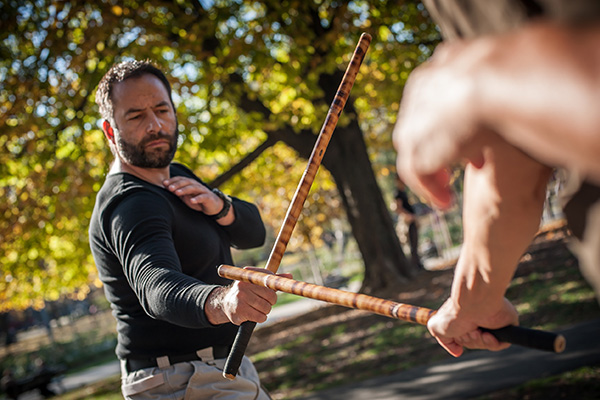healthy living
The Ancient Art Of Facial Reading
 Physiognomy is an ancient belief system that the face reveals the hidden truths of the mind, body, and spirit. In many cultures, the face is seen as a reflection of the soul or inner self.
Physiognomy is an ancient belief system that the face reveals the hidden truths of the mind, body, and spirit. In many cultures, the face is seen as a reflection of the soul or inner self.
This belief that a person’s physical characteristics, such as the shape of their face, eyes, or nose, can reveal something about their inner nature has roots in various ancient cultures and has been practiced for thousands of years. In some esoteric traditions, facial characteristics are believed to also reveal past life influences and karmic imprints.
The face is more than just a reflection of our emotions; it is a map of our physical health, life experiences, and even our spiritual state. By observing our facial features and learning to interpret their subtle messages, we can gain valuable insights into our health and well-being.
One of the earliest and most detailed systems of face reading comes from Traditional Chinese Medicine (TCM). Chinese face reading, or Mian Xiang, dates back more than 3,000 years. Practitioners view the human face as a map of a person’s life, health, and destiny. They divide the face into different areas, each corresponding to different internal organs and emotional states. Facial analysis is used to diagnose imbalances in the body and mind.
Physiognomy was also practiced in ancient Greece. The philosopher Aristotle (384-322 BC) wrote about it, arguing that certain facial features could indicate personality traits and that there was a connection between a person’s appearance and their character. Greek scholars believed that external features, such as facial structure, could provide insight into a person’s moral and psychological makeup.
Tarot Forecast October 2024: Ten Of Wands
 The card this month is the Ten of Wands, which predicts the potential for life’s challenges to feel overwhelming in the weeks ahead, but this will also offer us the opportunity for personal growth through perseverance.
The card this month is the Ten of Wands, which predicts the potential for life’s challenges to feel overwhelming in the weeks ahead, but this will also offer us the opportunity for personal growth through perseverance.
When we push through difficulties, we not only build strength, but also shape our perception of success. It’s important to remember that how we view our challenges often determines whether we see them as victories or defeats.
The burdens that life places on us make us grow and know that we are resilient when things don’t go our way. Knowing that even when we see situations not working in our favor, if we see value and learning in it, we dare to stand up for ourselves and go for it anyway.
This month it may feel like we’re juggling a lot at once, but in these challenges lies the opportunity to gain wisdom and clarity. It may feel heavy, as if we have too many responsibilities or carry an emotional burden that’s hard to release.
The central image depicted on the Ten of Wands cards is a figure burdened by having to carry ten heavy wands, symbolizing an overwhelming load or heavy burden. The figure is struggling under the weight, illustrating the concept of carrying too much responsibility or facing numerous challenges. It emphasizes the physical and emotional strain that can result from over-commitment or excessive obligations.
The figure is also walking along a narrow path or road, suggesting a journey or direction. The path indicates that the stresses are part of a larger journey or goal, implying that the challenges are necessary to achieve something significant.
The Spiritual Significance Of A September Cleaning
 Did you know that cleaning can be so much more than a boring chore? When done mindfully and with intention, it can become a transformative ritual that aligns our physical environment and the spaces in which we live and work with higher spiritual energies.
Did you know that cleaning can be so much more than a boring chore? When done mindfully and with intention, it can become a transformative ritual that aligns our physical environment and the spaces in which we live and work with higher spiritual energies.
By clearing away dirt, clutter, and disorder as a form of mindful meditation and cleansing ritual, you can also cleanse your inner being, releasing what no longer serves you and making room for new energies to flow. The act of cleansing can then serve as a bridge between the physical and spiritual realms, allowing the harmonious flow of life force energy, or chi, through your physical environment.
Everything in the universe is interconnected, including the spaces we inhabit. Metaphysically, our homes and workplaces are extensions of our own energy field. When these spaces are cluttered or dirty, they begin to affect or even block the flow of positive energy, leading to feelings of lethargy, confusion, and spiritual stagnation. More importantly, negative energy imprints and residues tend to accumulate in our homes through our interactions with other people and the outside world. Cleansing thus becomes an essential spiritual practice, similar to meditation or prayer, that helps restore balance, flow and harmony.
The physical act of cleaning is not only about maintaining order and hygiene in our surroundings, but also about aligning our internal energies and preparing our minds for deeper spiritual engagement. It’s like meditation, but with a broom and a mop!
By systematically organizing and cleaning, we can practice mindfulness and focus on the present moment and the task at hand. As unnecessary items are discarded and surfaces are cleaned, we experience a corresponding release of old emotions and thought patterns that no longer serve us. In this way, the simple act of wiping down a shelf or sweeping a floor can become a profound spiritual practice that connects us to the sacredness of the present moment.
Tarot Forecast September 2024: Two Of Cups
 The card that came up for this month is the Two of Cups, which carries the symbolism of connection, balance, harmony, mutual affection, and partnership.
The card that came up for this month is the Two of Cups, which carries the symbolism of connection, balance, harmony, mutual affection, and partnership.
In the Rider-Waite Tarot deck, this card depicts a couple standing face to face, each holding a golden cup in one hand. They extend their cups toward each other as if in a toast or exchange, symbolizing a mutual offering of affection, love, support, or a celebration of their shared success. Their gaze is locked, indicating a deep connection and understanding between them.
Above their heads is a caduceus, the ancient symbol of healing, two serpents intertwined, representing their powerful union and the personal and spiritual healing they find with each other. At the top is a winged lion’s head, symbolizing spiritual strength and divine protection in the sacred union of their souls.
The core meaning of this card is the coming together of two individuals. This can be romantic, platonic, or business-related. The emphasis is on mutual respect, harmony, understanding, and a balanced give and take.
The cups also represent emotion. It’s a card of deep emotional intimacy, connection, and a harmonious union based on mutual respect and love. This card often signifies the beginning of a new chapter in a partnership or committed relationship, full of potential and growth.
As we enter this new month, the energy of the Two of Cups will take center stage, guiding us through various aspects of life with themes of harmony, emotional connection and mutual understanding.
Tarot Forecast August 2024: Seven Of Wands
 The card for this month is the Seven of Wands, which predicts the need for determination, resilience and facing challenges head-on.
The card for this month is the Seven of Wands, which predicts the need for determination, resilience and facing challenges head-on.
The Seven of Wands depicts a figure standing on higher ground, holding off opponents below with a single wand. The imagery conveys a sense of defiance and unwavering determination, suggesting that despite the challenges and competition, victory is possible through perseverance and courage.
As we enter this month with the Seven of Wands as our guiding influence, we are reminded of the importance of staying true to our values and beliefs, even in the face of significant obstacles. The Seven of Wands encourages us to adopt a warrior-like spirit, ready to defend our positions and protect what we hold dear.
This card signals a time when we must be prepared to encounter resistance and opposition, whether in our personal, professional or spiritual pursuits. It serves as a reminder that while challenges are inevitable, our strength lies in our ability to remain steadfast and resilient. The Seven of Wands teaches us that through determination and unwavering focus we can overcome adversity and emerge victorious.
We are likely to find ourselves in situations this month where we need to defend our position or beliefs, but remember that your courage and inner strength will see you through. Our resilience and positive attitude will inspire those around us, creating an atmosphere of motivation and progress.
Tarot Forecast July 2024: The Tower
 This month’s card is the Tower, which predicts the energies of disruption, revelation, transformation and the breaking down of old structures.
This month’s card is the Tower, which predicts the energies of disruption, revelation, transformation and the breaking down of old structures.
The Tower card is a powerful symbol of sudden upheaval and change. It’s traditionally depicted as a tall tower struck by lightning, representing chaos and upheaval. It represents life throwing us a curveball.
As lightning strikes and flames dismantle the old structure, it forces us to confront our foundations and belief systems. While painful, this destruction can lead to necessary revelations and a chance to rebuild on a stronger foundation. By letting go of what no longer serves you, you open yourself up to new possibilities.
The Tower showing up in a reading, though scary and troubling at first glance, always precedes a period of significant growth. Destruction creates opportunity. Most situations we face are opportunities, even the bad ones. It’s all about the opportunity and how you see it.
Embracing chaos will be the key to clarity and growth this month. This is a time to rebuild and redesign your life in a way that is more in line with your true self.
Approach the month with an open heart and a willingness to let go of what no longer serves you. Whether it’s health, finances, career, relationships or personal growth, the Tower’s influence will lead you to a more liberated and empowered version of yourself. Trust the transformative power of the Tower. Embrace the changes and you will emerge from this month stronger, wiser and more in alignment with your true self.
Finding Your Strength And Peace In Difficult Times
 I’ve noticed many of my clients feeling as though the world is crumbling around them lately, unsure of how to navigate the chaos that surrounds them.
I’ve noticed many of my clients feeling as though the world is crumbling around them lately, unsure of how to navigate the chaos that surrounds them.
If this is true for you, then it is essential to remind yourself that the actions and choices of others do not define your path – it’s theirs to walk, not yours. Your focus should remain on your journey and how you can positively impact the world around you. Spirit has been very clear in its guidance in this regard.
Everyone has something in their soul that they need to release, move past and grow from or it will just karmically repeat itself in every lifetime. Let go of trying to fix other people or solve their problems and just move forward with your own life. Do not give your power away to anyone, for Source is with you and always wants you to keep your power.
If you find yourself constantly watching the news, engaging with negative content on social media, or dealing with recent grief from the loss of loved ones to suicide, terminal illness, or strained relationships, it’s time to take a step back and ground yourself.
Grief, stress, and anxiety can take a toll on your mental, emotional, and spiritual well-being. During these times, reconnecting with your spirituality and grounding yourself can provide comfort, strength, and a sense of peace. It is important that you do not let go of your inner power or allow the outside world to suck the life out of you.